September 16 marks the 70th anniversary of Mukhadin Shenkao, a socio-political activist of the KChR and a member of the Supreme Council of the WAC. The WAC web information portal prepared an essay on the life and multifaceted activities of this extraordinary person.
Lyudmila Aysanova
Mukhadin Alievich Shenkao - Honored Worker of the Higher School of the KChR, public and political figure, member of the Supreme Council of the WAC - was born on September 16, 1949 in the village of Staro-Kuvinsk of the Karachay-Cherkess Autonomous Region of the Stavropol Region in the family of Ali Aydovich Shenkao and Sham Murzabekovna Gedegusheva.
“Pskhuvites” - from the clan of hunters
According to Mukhadin Alievich himself, the Shenkao clan was forced to relocate from the Abkhaz village of Pskhu during the Caucasian War. In August 1864, the “Pskhuvites” (as they were called for a long time), among them the great-grandfather of Mukhadin Dakun Zauhesovich, after a long and difficult journey settled on the banks of the small river Kuva, located between the current village of Storozhevaya and the village of Pregradnaya of the Karachay-Cherkess Republic. This area was first called Kuva-vashi, and is now called Koba-bashi.
After the severe drought of 1866 and the mass death of cattle, the settlers were on the verge of starvation. The elders, after consulting and coordinating their decision with the authorities, chose another, more favorable for living area, located downstream of the Bolshoy Zelenchuk River - the current village of Staro-Kuvinsk. So he was named in honor of the rivulet Kuva, where they first stayed after resettlement from Abkhazia.
“My great-grandfather Dakun Zauhesovich was a very famous hunter in Pskhu, whole legends were made up about his special method of hunting for a bear and numerous trophies in the district. For a long time after the resettlement, he could not make his life and really adapt to work on the ground, so strong was his desire for his former craft and abandoned places of origin,” says Mukhadin Alievich.
The great-great-grandfather, Zauhes, was also known throughout Abkhazia as a brave and fearless man. He, as a guard, accompanied groups of Abkhaz Muslim pilgrims traveling to Mecca. Unfortunately, he died in the desert in a collision with robbers, saving the lives of the rest of the group.
Father's willpower and mother's gentleness
Mukhadin Alievich very enthusiastically talks about his ancestors. And this is not surprising: for many years he bit by bit collected a history of his kind, even prepared for publication a whole work devoted to the genealogical tree of the Shenkao clan of nine generations.
Mukhadin's father Ali Aydovich Shenkao was born in 1914. From a young age, Ali, along with two older brothers and three sisters, learned all the difficulties of hard rural labor and life's trials during the Civil War, forced collectivization, hunger and repression of the 30s of the XX century. Nevertheless, Ali Aydovich managed to enter the Vorontsov-Aleksandrovsky College of Mechanization of the Stavropol Region and graduate in 1942, after which he began to work as a mechanic in the Khabez machine-tractor station. Such specialists at that time were very in demand and therefore were exempted from military service, despite the fact that the Great Patriotic War of 1941-1945 was on. But the father did not take advantage of this privilege.
“Refusing the reservation, the father wrote a statement and volunteered for the front,” says Mukhadin Alievich.
Red Army Guard - Ali Aydovich Shenkao, as part of an anti-tank fighter unit, took an active part in the fighting to liberate the south of Russia, Ukraine, Belarus, the Baltic states, Poland and Germany. For courage and heroism shown, he was awarded the orders of the Patriotic War I and II degree, medals “For Courage”, “For the Defense of the Caucasus”, “For the Taking of Koenigsberg.” In the battles during the taking of the city of Koenigsberg in April 1945, Ali was seriously injured and his right leg was amputated. The descendant of fearless hunters did not despair and did not give up: having returned home, he began to continue to work actively by profession, and soon married. Ali Aydovich, along with his wife, raised five sons and a daughter, the second of which was Mukhadin. They all studied at school and got higher education.
“I was always amazed at my father’s enormous willpower, his thirst for life and hard work. Being handicapped for so many years, he never asked for help, he never broke down, and remained an active and positive person until the end of his life. He made a considerable contribution to the development of the national economy of the region, managed to gain the authority of his fellow villagers,” says Mukhadin Alievich with pride.
His mother, Sham Murzabekovna, maiden name Gedegusheva, was from a fairly wealthy family, she graduated from a medical school in the city of Cherkessk, but devoted her whole life to family and children. “She was a very gentle, affable person,” recalls Mukhadin Alievich. All the kids from the street came to our yard only to play, and each time she greeted everyone with a smile and treated everyone. Neighbors and relatives valued her kindness and generosity,” Shenkao recalls.
Physicist, astronomer, builder ...
Mukhadin Alievich’s childhood was interesting and happy. He studied well. Already in high school, in addition to basic subjects, he became interested in the history of the Abaza-Abkhaz people and the origin of his own kind. He also loved physics and mathematics, participated in regional competitions and won there more than once. He was fascinated by the social work that he carried out at school, being the secretary of the Komsomol organization.
In 1966, Mukhadin Shenkao, having graduated from the Starokuvinsk secondary school, decided to enter the Leningrad State University at the Faculty of Mechanics and Mathematics with a degree in astronomy.
“I managed to pass all the entrance exams, but the threshold of competitive selection did not allow me to become a student,” says Mukhadin Alievich, and adds with a smile: “All that was left was to blame the maternal grandmother Byba, who had been praying desperately to Allah so that I wouldn’t go far.”
The next year, in terms reservation for excellent students in the district, Muhkadin Shenkao entered the hydro-technical faculty of the Ashgabat Agricultural Institute, but soon decided to transfer to a more prestigious university - the Odessa Civil Engineering Institute.
According to Mukhadin, these were the happiest, most interesting years in his life. He eagerly absorbed all the facets of being and the colors of a large, luxurious, coastal city, enjoying the joys of a carefree youth.
“I was lucky to make friends with an undergraduate Igor Tornapolsky, who was able to invest a lot in me. He was a very educated and comprehensively developed person, he was seriously interested in poetry and art,” says Mukhadin Alievich, recalling how he and his many friends tried not to miss a single metropolitan premiere or exhibition, lived an interesting and active life, and developed intellectually.
“Odessa is still one of my favorite cities in my dreams and best memories,” says Mukhadin Shenkao.
Both Cherkessk and Cambodia
After graduating from the Civil Engineering Institute, Mukhadin worked at state-owned enterprises in the construction industry in Nizhny Tagil and the KChR, and in September 1975 he was invited to the branch of the Stavropol Polytechnic Institute of Cherkessk to the Department of Civil Engineering. For five years of scientific and pedagogical university activity, he has gone from assistant to deputy director for academic and scientific work of the institute's branch. In 1980-1983 he studied at the full-time postgraduate study at the Moscow Civil Engineering Institute, defended his thesis and received the degree of candidate of technical sciences.
In September 1985, from the Ministry of Higher Education of the USSR, Mukhadin Alievich Shenkao was sent on a business trip to the People's Republic of Kampuchea (now Cambodia). There, for two years he was a teacher in the building department of the Phnom Penh Higher Technical Institute. This was the period of the formation of the then People's Republic of Kampuchea, and Soviet specialists assisted in the restoration and development of the higher education system.
The years spent in Cambodia, became a bright stage in the life of a young scientist: he gained tremendous experience and was extremely useful for business as a professional. Shenkao developed university programs, teaching aids in various construction disciplines, received a diploma from the Ministry of Education of the republic for his contribution, and was even elected to the institute as a member of the Academic Council, which included only 10 people from 120 Soviet teachers.
After returning from a business trip in 1987, the scientist continued his professional activities as an assistant professor and head of the Department of Construction Production Technologies at the Karachay-Cherkess State Technological Institute, where he worked for more than 13 years.
“On this day I decided to make my dream come true”
Active political activity of Mukhadin Shenkao began in September 1989: he was then appointed deputy chairman of the organizing committee for the preparation and conduct of the First Constituent Congress of the Abaza public organization “Adgylara”. With his direct participation, the first draft charter documents and a long-term program for the socio-economic development of the Abaza ethnic group were developed.
In 1990, Shenkao, as part of a delegation from the KChR, went to Sukhum to an international forum organized in support of the independence of Abkhazia. Now he had to support the aspirations of his brothers, to become closer to the land of his ancestors.
And for the first time in the “land of the soul” of Apsny, he found himself back in 1973, and unexpectedly even for himself. He flew from Nizhny Tagil, where he then worked, to the Minvody airport, and suddenly decided to go to Abkhazia.
“I remember very clearly that feeling of this strange and instant message. And it was on this day that I decided that I would fulfill my cherished dream,” recalls Mukhadin.
After this spontaneous trip, he begins to visit Abkhazia often. Shenkao says that he could no longer handle without lovely landscapes and people with whom he had warm relations, common ideas and goals.
With special gratitude, Mukhadin Alievich recalls his relative Nikolai Shenkao, a historian and archaeologist, who seemed to be a kind of “bridge”, a link in the chain of contacts between Abaza and Abkhaz. Nikolai Shenkao introduced Mukhadin to many well-known socio-political figures of Abkhazia, with prominent representatives of the creative intelligentsia, with whom he was lucky to cooperate in the future.
Receiving Vladislav Ardzinba as a guest
In the early 1990s, Mukhadin Shenkao was included in the Abkhaz delegation to participate in the negotiations of public organizations of Abkhazia and Georgia, which took place in Nalchik and Cherkessk. In 1990, together with the leaders of the Abaza national movement Aleksei Meremkulov and Mikhail Tkhaytsukhov, he became a delegate to the First Congress of Small Peoples of the USSR, which was held in Moscow.
One of the active initiators and organizers of this congress was Vladislav Ardzinba. During consultative trips to the republics and regions of the North Caucasus, Vladislav Grigoryevich then came to Cherkessk.
“Given the tight schedule of meetings and limited time, we decided to hold a meeting with Ardzinba in my house,” Shenkao recalls.
Interestingly, then his house was still under construction, the construction was not completed. But the owner did everything possible to receive eminent guests.
“I was immensely happy to meet with Vladislav Ardzinba. I was struck by charisma and special charm, coupled with ease of communication. He was an intellectual and a leader of the highest standard,” Mukhadin Alievich shares his memories.
Delegates of the Executive Committee of the International Circassian Association, headed by Boris Akbashev, at a reception at the President of the Republic of Abkhazia, Vladislav Ardzinba, Sukhum© From the archive of Mukhadin ShenkaoDuring the mourning event dedicated to the tragic exodus of the peoples of the North Caucasus and Abkhazia to Turkey. In the photo from right to left: Mukhadin Shenkao, Jamalettin Yumit (Ardzinba), Yuri Argun, Lafishev, Vladimir Avidzba. Istanbul 2004© From the archive of Mukhadin Shenkao
Experience, authority and the work of life
The following years in the activities of Mukhadin Shenkao become more saturated and responsible. Work for the benefit of the preservation and development of an ethnos becomes the meaning of his life. Mukhadin Alievich Shenkao was elected three times as the chairman of the public movement of the Abaza of the Karachay-Cherkess Republic in 1999, 2012 and 2015. In the responsible and tragic periods of life of the Abkhaz-Abaza people, Shenkao was always at the forefront. He invaluable helped in providing humanitarian and other assistance during the liberation war of the Abkhaz people (Patriotic War of the people of Abkhazia 1992-1993 - ed.). He was a co-chair of the public headquarters for comprehensive assistance to Abkhazia, actively supported refugees, helped in providing them with housing, in obtaining citizenship and refugee status, in providing them with the opportunity to study at the universities of the KChR.
Experience and authority allowed Mukhadin Shenkao to effectively solve important issues on the preservation and development of the original culture of the Abaza people. This is the support of talented youth, and the implementation of social, cultural projects.
From 2001 to 2009, Mukhadin Alievich was twice elected as a deputy of the People’s Assembly (Parliament) of the KChR, served as chairman of the agrarian committee, deputy chairman of the committee on regulation and information policy, chairman of the committee on legislation, legality and state building of the People’s Assembly (Parliament) of the KChR. Shenkao took an active part in the preparation, discussion and adoption of the laws of the KChR, including the law “On the small people of Abaza in the KChR” and on the formation of the Abaza municipal district.
One paper is not enough to tell in detail about the life and all socially significant activities of Mukhadin Shenkao. Decent, modest, fair, courageous, dedicated to serving his people - this is how his close friends and even strangers see him: his authority in the society speaks for itself.
Shenkao speaks of the preservation and development of his native people as follows: “Over the years, a great deal of work has been done by a number of dedicated leaders, activists and caring people who support their people. Without them, it would be difficult to cover all the problematic issues. Now we have a whole structural unit - “Alashara”, the WAC, which deal with the whole spectrum of tasks facing our people. We are happy and proud that now all the work is systematized. For our part, we are trying to help the young generation of politicians and public figures, to transfer our knowledge and experience.”
What Mukhadin Alievich Shenkao dreamed of as a young man and his people was almost realized. He considers himself a happy man, because next to him are his relatives: a faithful companion and a beautiful mother, wife Irina Adylgerievna, three sons, a grandson and two granddaughters. And at the end of the conversation, Mukhadin Alievich shared his other joy: soon a replenishment is expected in the family - the second grandson.
We wish Mukhadin Alievich and all members of his family great happiness and prosperity, good health and long life!
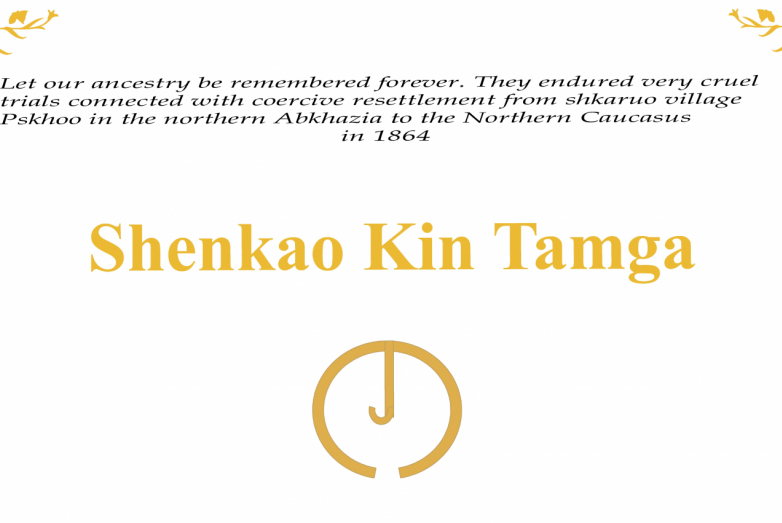
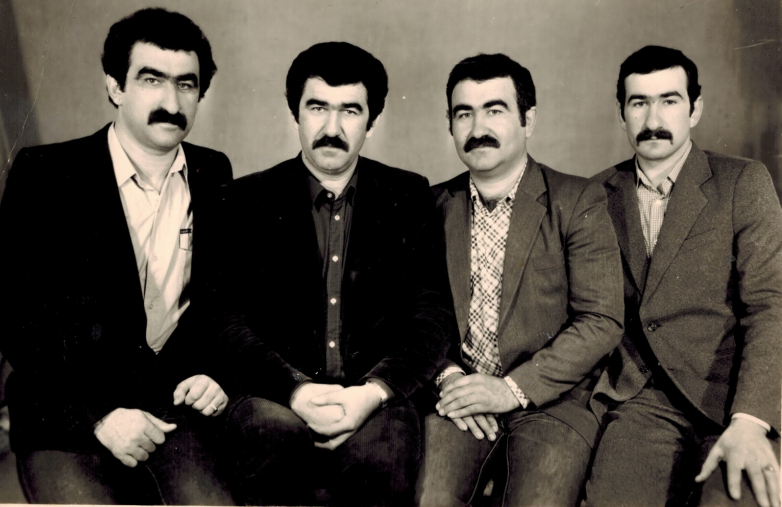
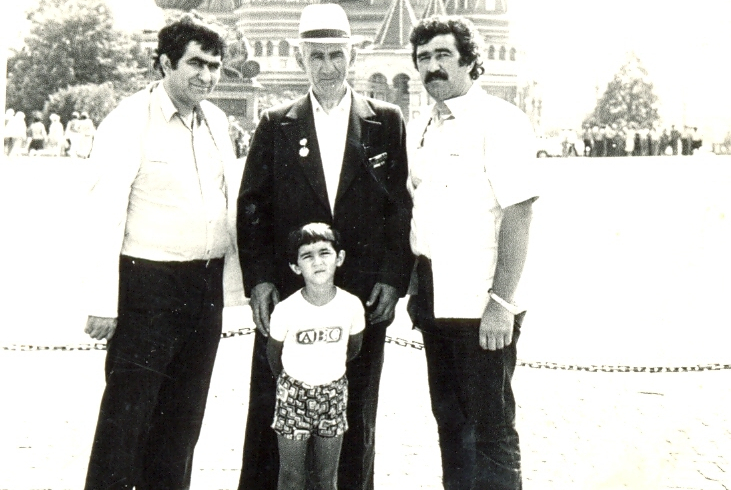
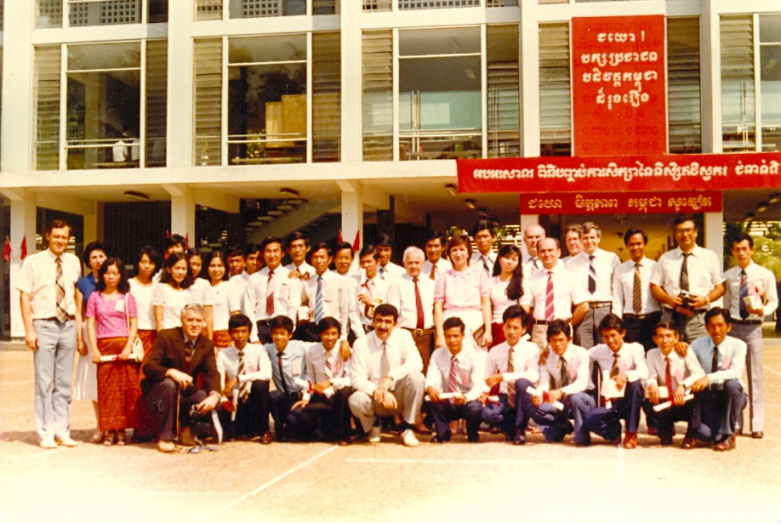
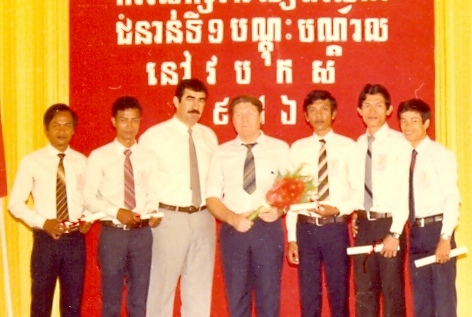
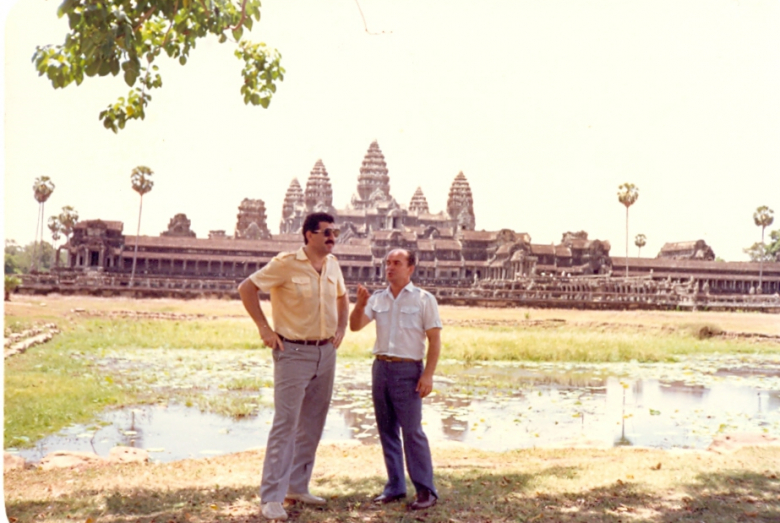
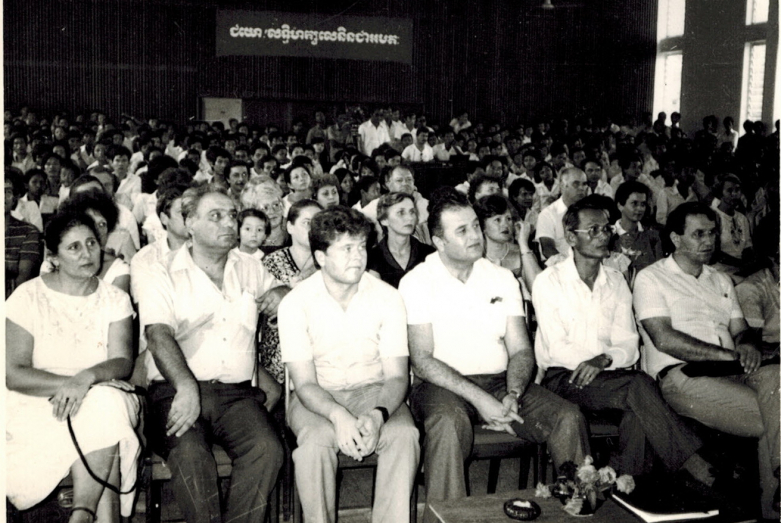
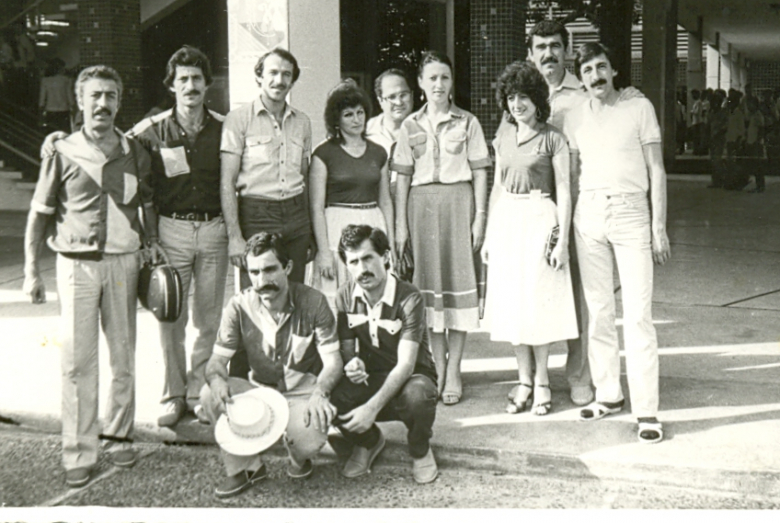
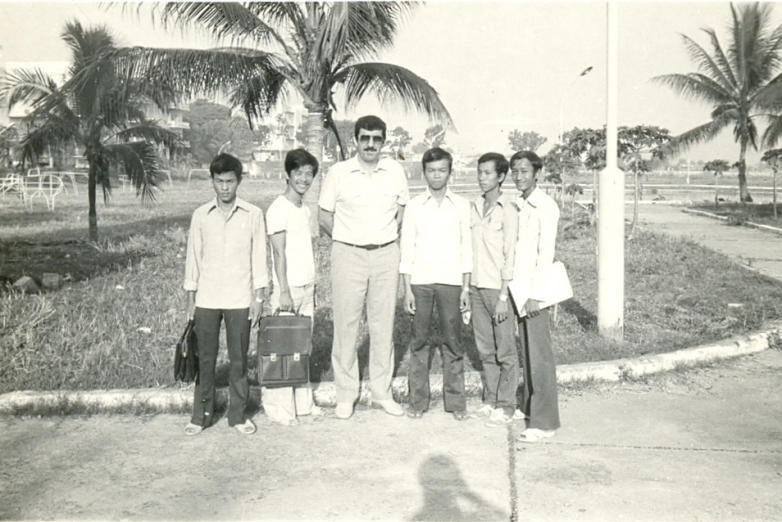
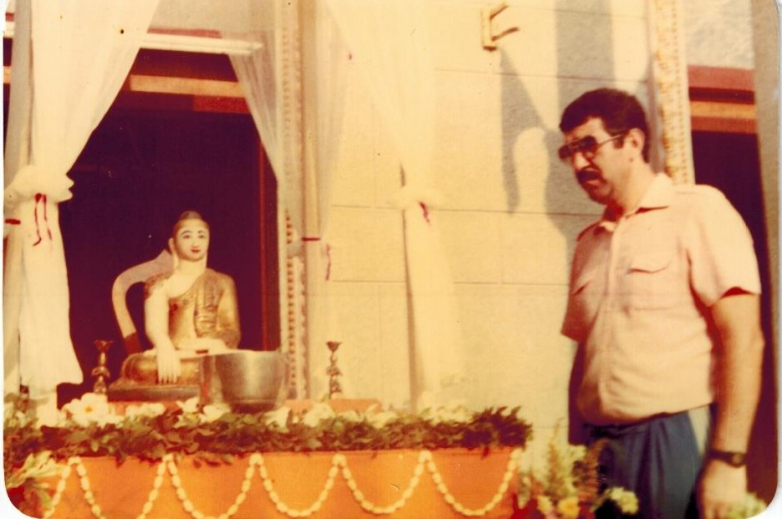
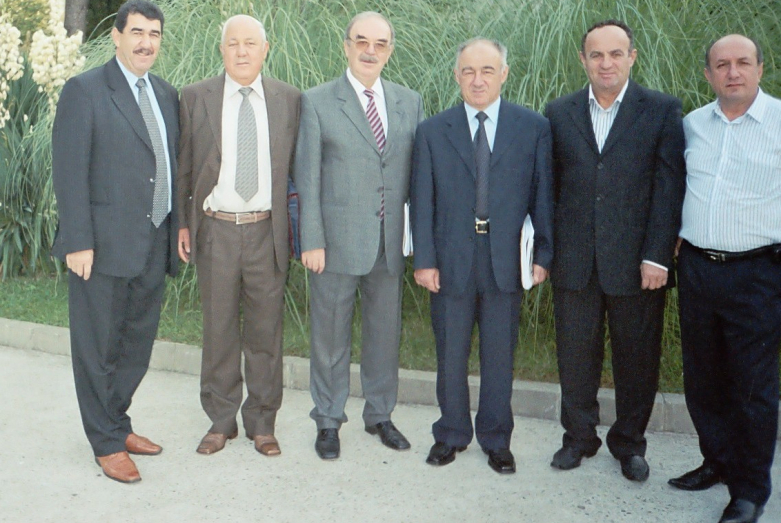
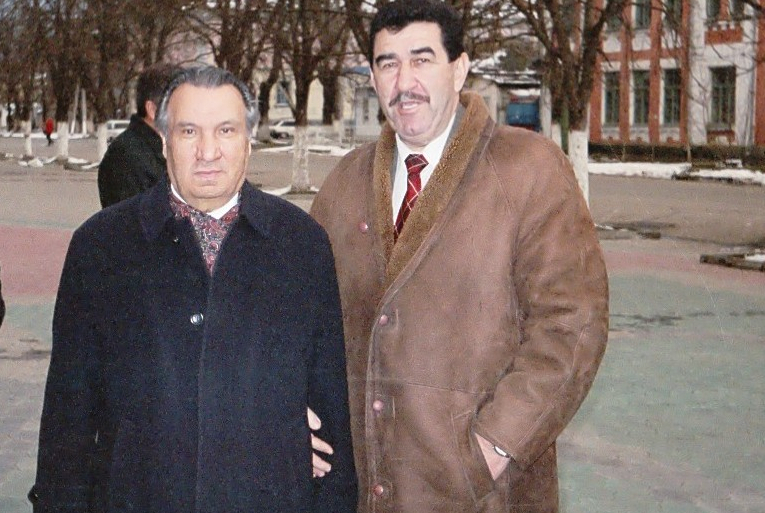
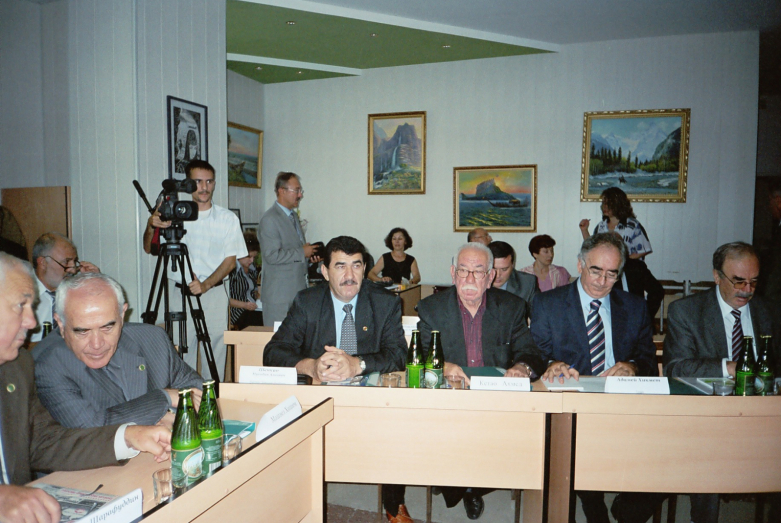
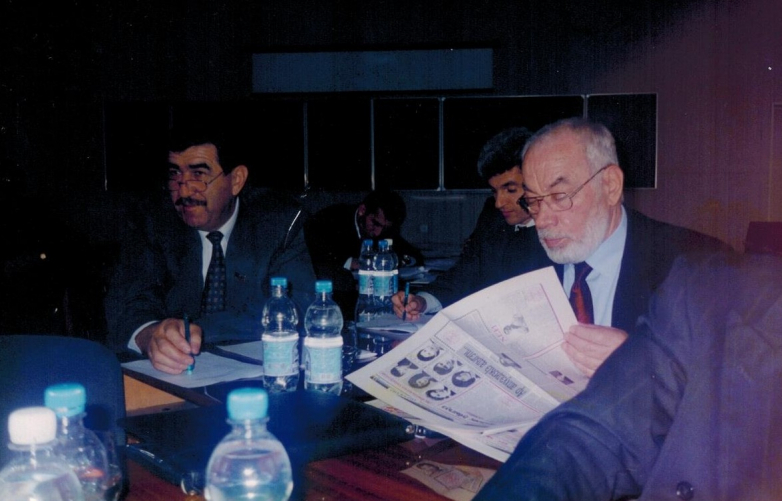
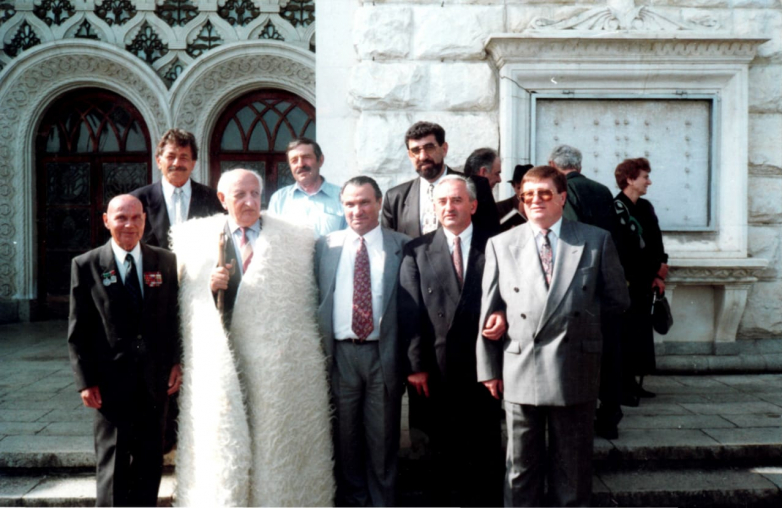
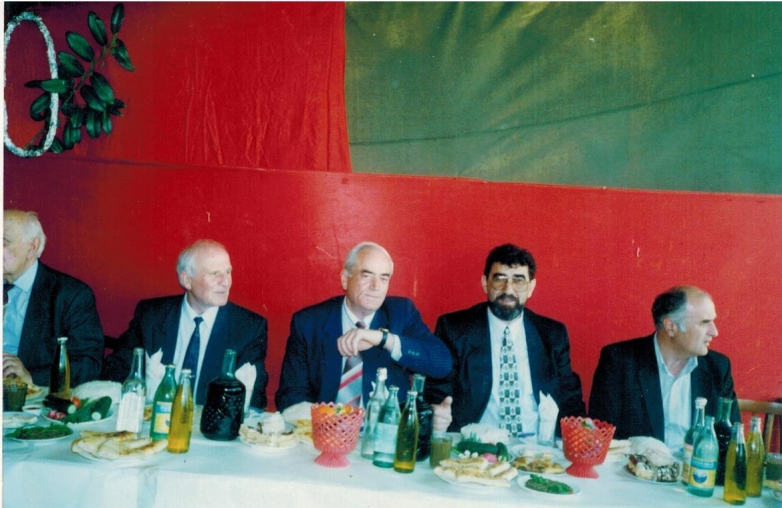
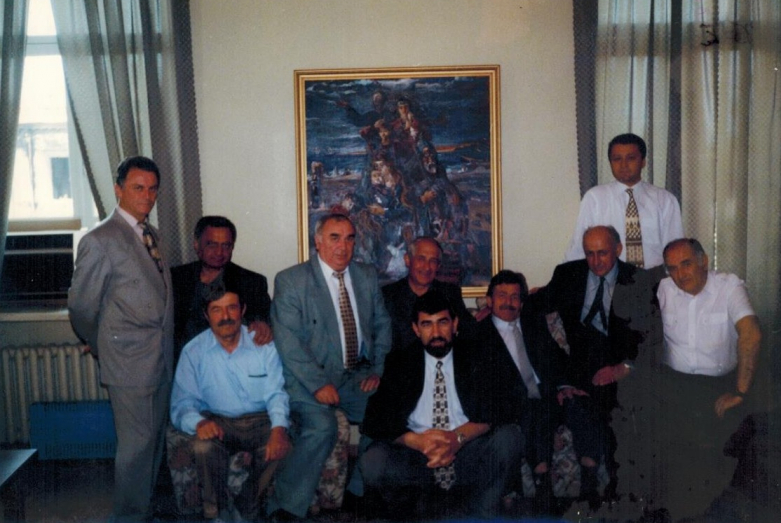
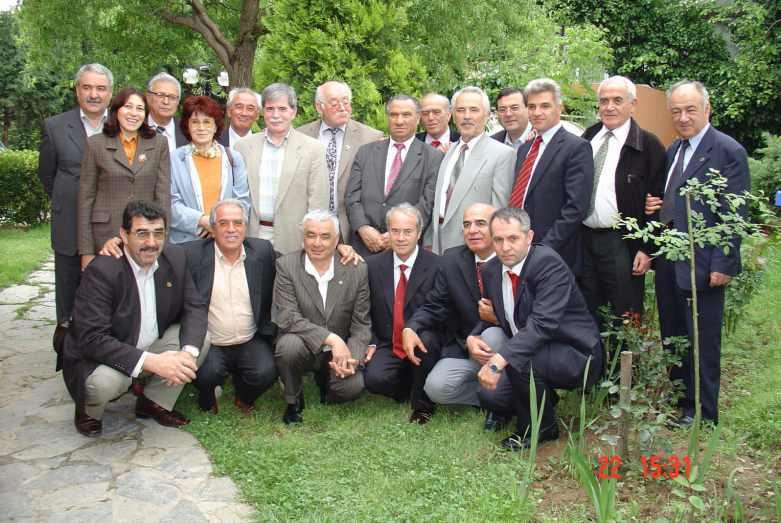
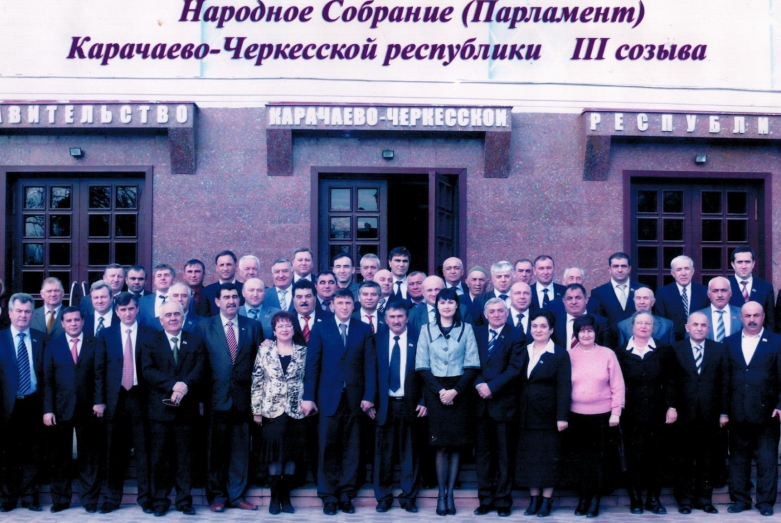
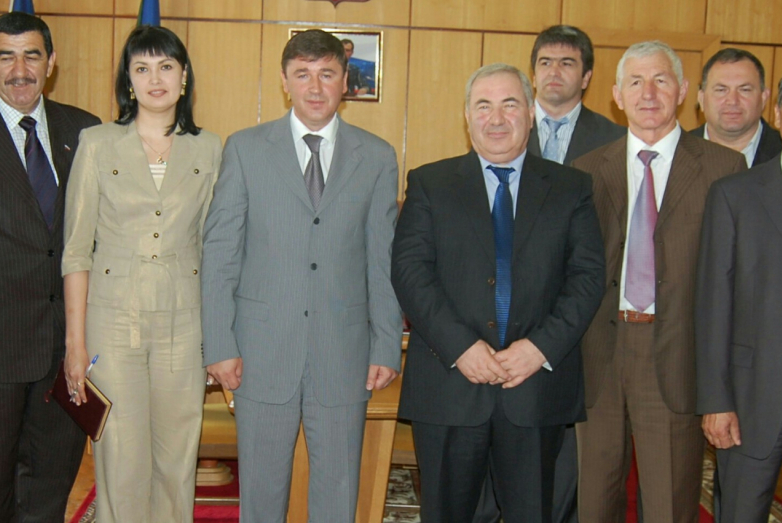
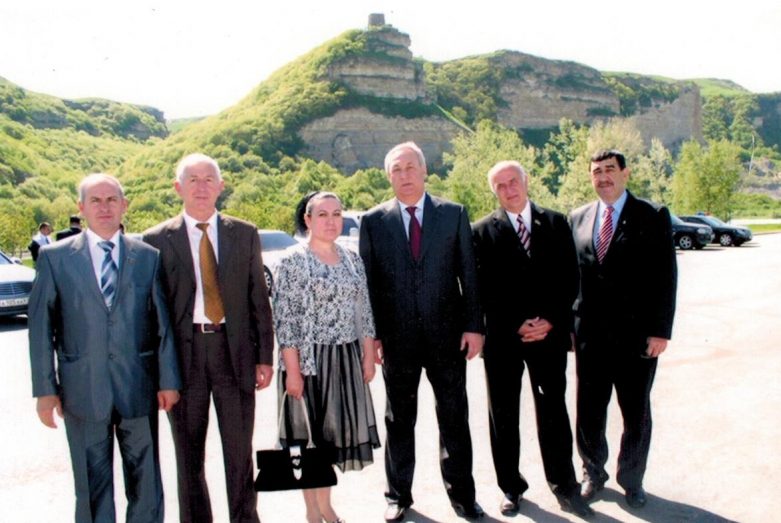
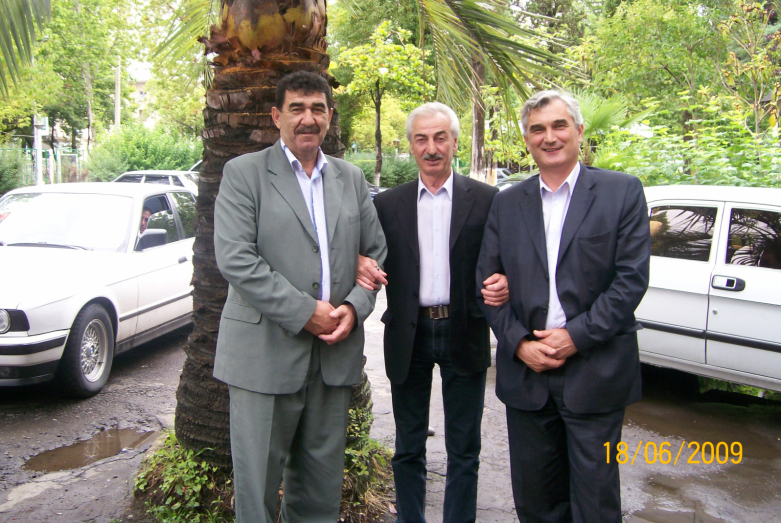
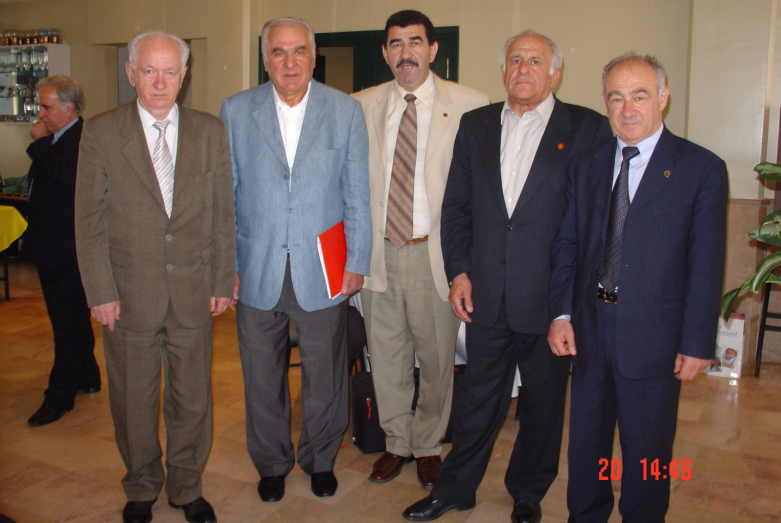
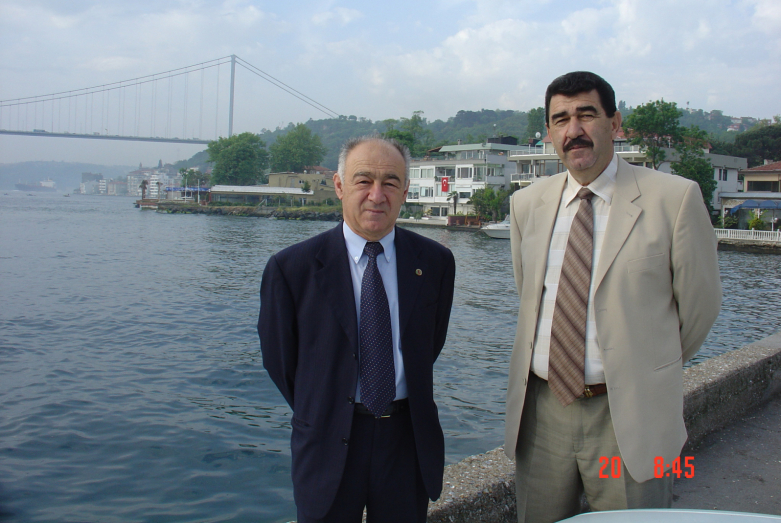
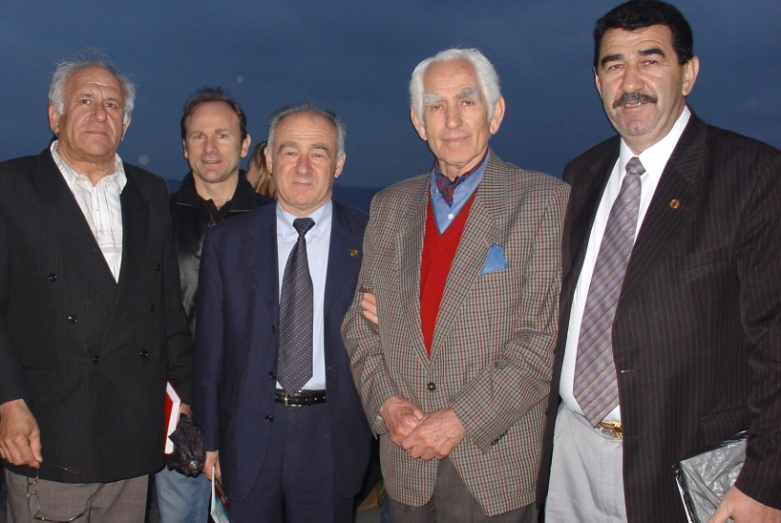
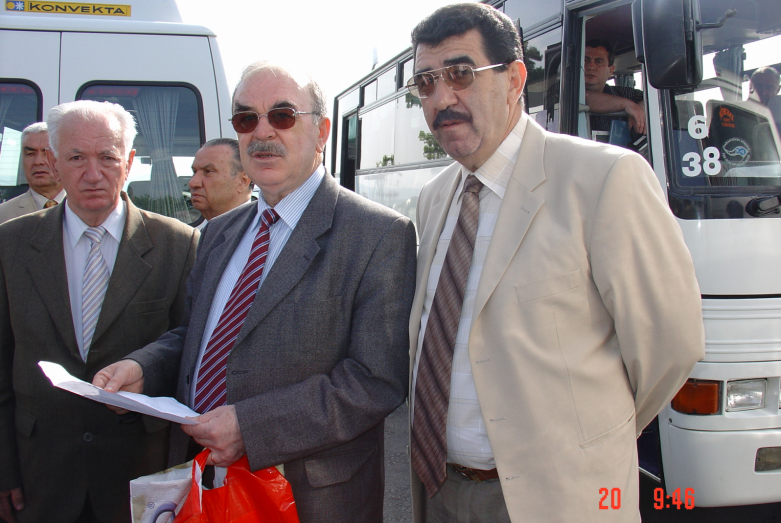
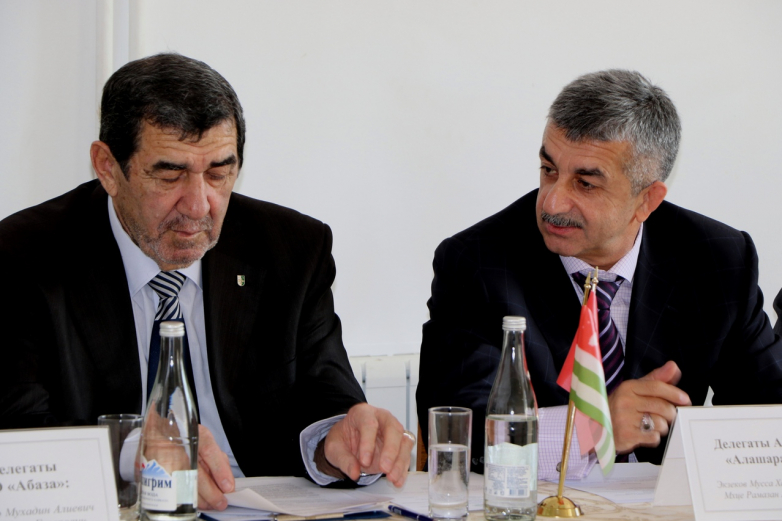
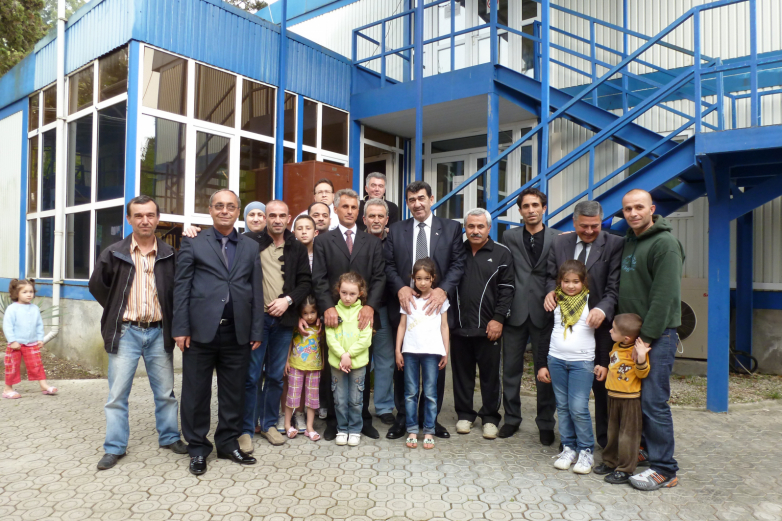
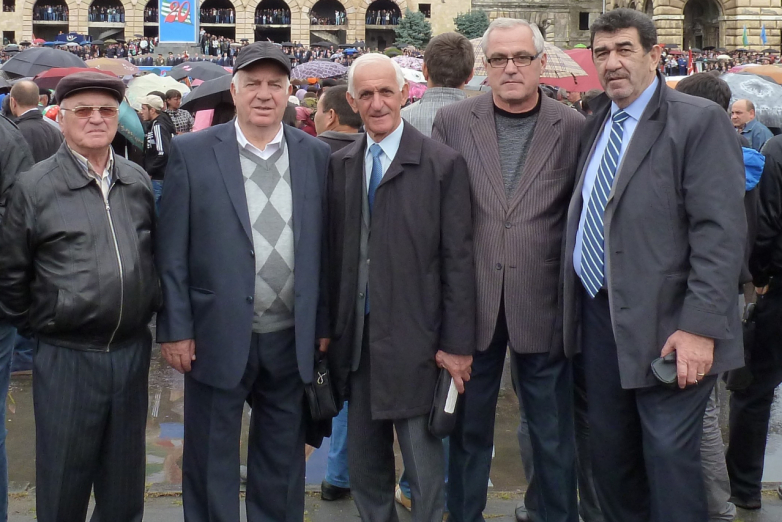
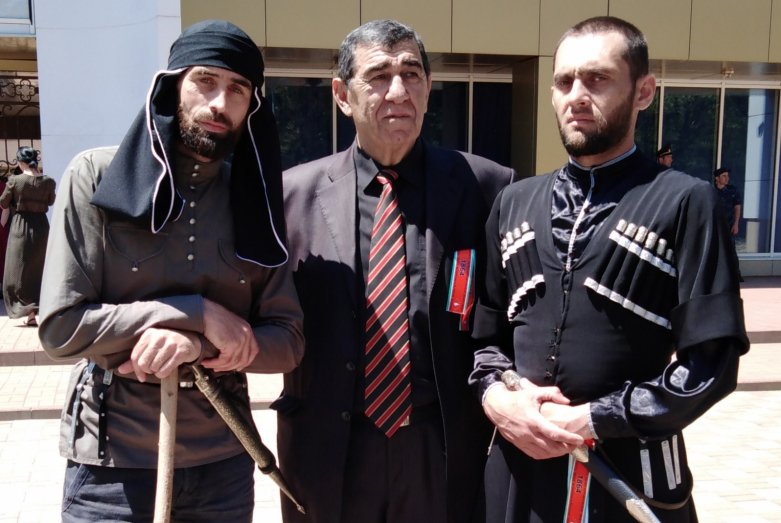
to login or register.